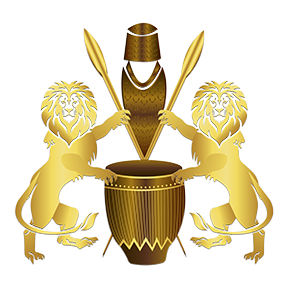Abayaga
The people native to the kingdom are the Batoro, and their language is likewise called Rutooro.
Origin of the Name: The name ‘Toro’ comes from an ancient word “Omutora” which means a ceremony and “abatoora” meaning a group of people in or set for a ceremony. The tribal name Batooro means ‘the ceremonious one’. For the Batooro, this is a daily reminder that they need to be ceremonious in their dealings with others. This ceremonial nature is manifested in their daily practices. For example, the Batooro put on their best clothing to welcome guests: a tradition carried out and passed on to us by our ancestors. A mutooro is not supposed to speak words or make any utterances that distort the mouth and make the person look undignified. Even in our dialect, it is often difficult to differentiate anger from joy; we are known to talk happily.
The Peoples: The people native to the kingdom are the ‘Batooro’ (singular, mutooro; adjective, kitooro), and their language is likewise called ‘Rutooro’.
Traditionally, the Batooro were demarcated along “economic activity” lines, rather than caste. Two classes could be identified, the Bahuma and the Bairu. Whereas the Bahuma were the cattle keepers, the Bairu were the land tillers. The two classes lived symbiotically as one provided the needed milk, meat and butter; and the other provided the needed food products. Today, the line of demarcation has grown very faint.
During times of war, all able bodied men would be called upon to serve in the defense of the Kingdom.
Since the old days, the Batooro have always considered themselves as one people, under the unifying leadership of the Omukama (King).
The Batooro are clean people. In the olden days, every Mutooro considered their homes as belonging to the king. As such, they kept their homes very clean. They were always expectant of the kings’ visit.
Since time immemorial, the Batooro children were taught to respect and value our elders. This practise continues. Pride in being a mutooro is a value of paramount importance that is inculcated into every mutooro child from birth. There are certain behaviors, manners of speech and personal conduct, therefore, that are considered to be beneath a self-respecting mutooro. We enjoy a rich culture of oral tradition, tribal customs, indigenous handicrafts, patriotism, and very high self-esteem.
This Tooro Cultural Information Platform is your go to source for the the ideas, customs, social behavior and cultural ecology of the Batooro.

Comments
So empty here ... leave a comment!